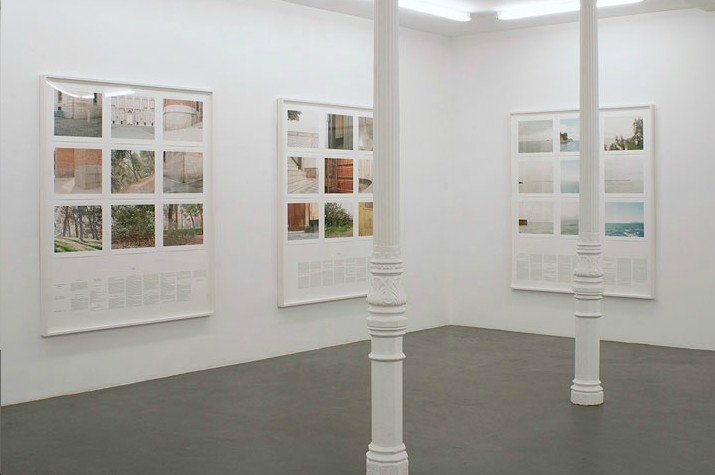Bleda y Rosa
01 Feb - 25 Mar 2014
BLEDA Y ROSA
Prontuario
1 February - 25 March 2014
PRONTUARIO
Notes on War and Revolution
A little over 200 years ago, a radical transformation in modes of thought began to take hold. Major social, political,philosophical and cultural changes were bringing into being a new way of understanding the world, and a rupture withthe old regime, which had been rooted in accepted and unwavering beliefs. Enlightenment thought became established and revolutionary movements were born. But each revolution, despite being conditioned by its own context – by the particular things it had to fight against – had in common the struggle for liberty and equality, even if it resorted to violence and war in service of that cause.
The Peninsular War also grew out of these liberal ideals, out of the popular uprisings, the rebellions, and out of the need to found a new political order. To get closer to this moment in history, we have considered the period running from 1805 to 1814 in a series of albums – conceived and organised in the form of episodes –building up a compendium or promptuarium of notes and references which coalesce around the insurrection, war and revolution in Spain.
This particular way of bringing together, opposing or bringing into dialogue different aspects of history and its traces, allows us – through convergences and tensions between text and image – to instigate new readings and narratives. Further, the work also invites reflection on the multiplicity of meanings that the concept of history itself both encompasses and affords: a reflection on the state of things, on the ways they are told, and on the knowing of the past.
Prontuario
1 February - 25 March 2014
PRONTUARIO
Notes on War and Revolution
A little over 200 years ago, a radical transformation in modes of thought began to take hold. Major social, political,philosophical and cultural changes were bringing into being a new way of understanding the world, and a rupture withthe old regime, which had been rooted in accepted and unwavering beliefs. Enlightenment thought became established and revolutionary movements were born. But each revolution, despite being conditioned by its own context – by the particular things it had to fight against – had in common the struggle for liberty and equality, even if it resorted to violence and war in service of that cause.
The Peninsular War also grew out of these liberal ideals, out of the popular uprisings, the rebellions, and out of the need to found a new political order. To get closer to this moment in history, we have considered the period running from 1805 to 1814 in a series of albums – conceived and organised in the form of episodes –building up a compendium or promptuarium of notes and references which coalesce around the insurrection, war and revolution in Spain.
This particular way of bringing together, opposing or bringing into dialogue different aspects of history and its traces, allows us – through convergences and tensions between text and image – to instigate new readings and narratives. Further, the work also invites reflection on the multiplicity of meanings that the concept of history itself both encompasses and affords: a reflection on the state of things, on the ways they are told, and on the knowing of the past.

